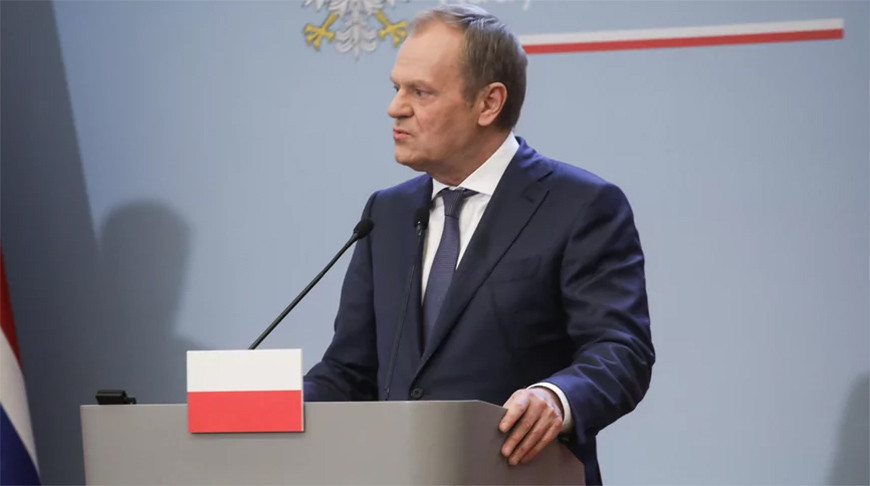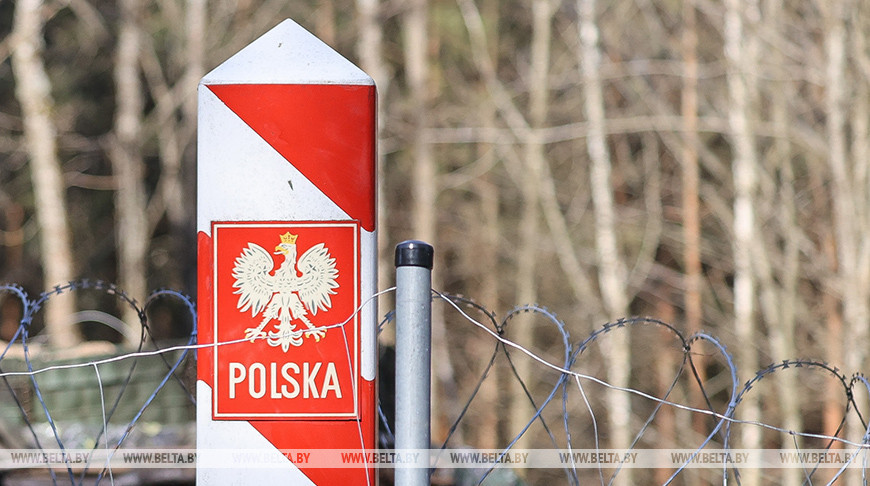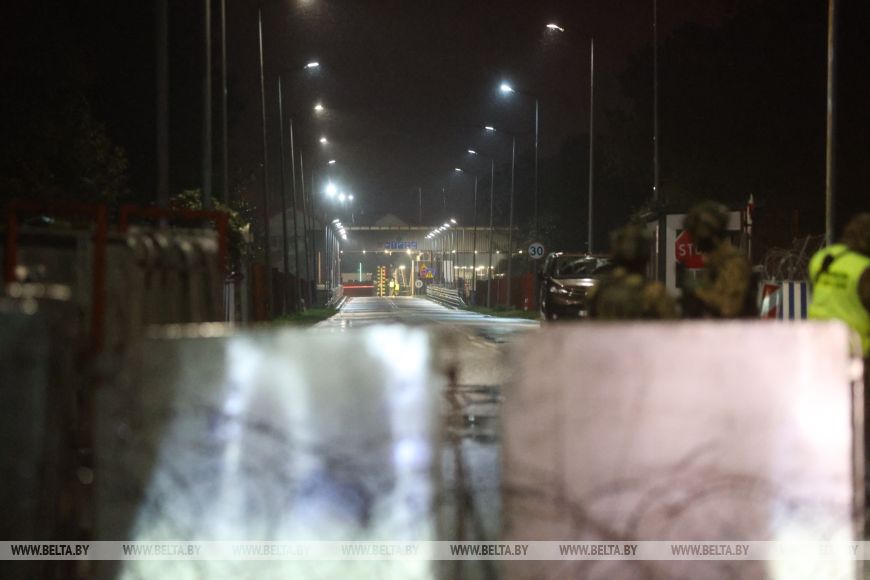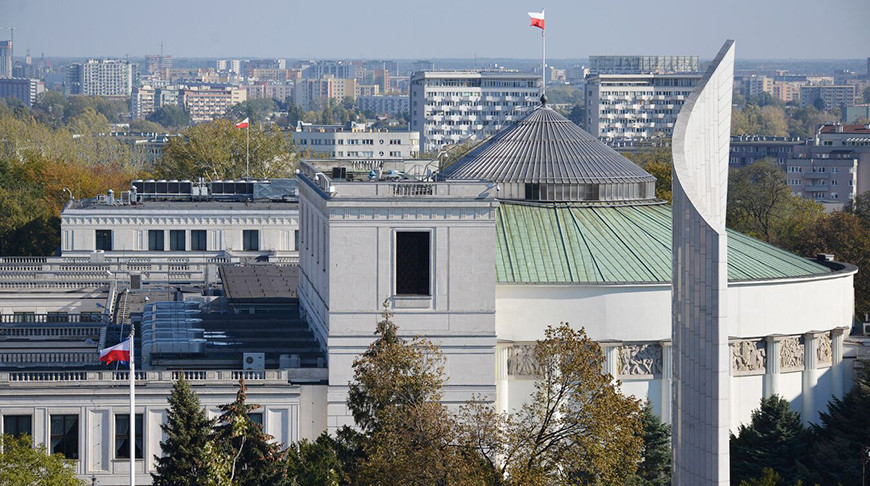
Unsplash photos
The Polish government has submitted the 2026 budget bill to the Sejm. In short, the hole in the Polish budget is getting even wider, and the public debt is set to skyrocket. Meanwhile, military spending is breaking records, solidifying Poland's status as the leader in NATO in terms of defense spending as a percentage of GDP.
However, the value of such leadership is questionable. Or even inglorious, as the Polish expert community believes. This leadership doesn’t pay your rent, build hospitals and schools or pay the salaries of public sector workers. The Polish elites hope to patch the holes in their budget with funds from EU coffers. By escalating tensions on its eastern border, Poland has already wrung tens of billions of dollars out of Brussels. However, by gambling with national security, Poland's government risks losing far more than it can win.
Inglorious leader of the European Union
However, the prime minister's optimism was clearly at odds with the economic data. 2024 concluded with a significant drop in exports and investment. A wave of bankruptcies and mass layoffs swept across the country. The current year has done little to boost optimism in this regard. The crisis in the Polish manufacturing sector worsened. Businesses shut down, and people were left without jobs.












However, the value of such leadership is questionable. Or even inglorious, as the Polish expert community believes. This leadership doesn’t pay your rent, build hospitals and schools or pay the salaries of public sector workers. The Polish elites hope to patch the holes in their budget with funds from EU coffers. By escalating tensions on its eastern border, Poland has already wrung tens of billions of dollars out of Brussels. However, by gambling with national security, Poland's government risks losing far more than it can win.
Inglorious leader of the European Union
All year long, Polish authorities have been showering the public with declarations about future economic breakthroughs and grand investment projects. “The dream that Poland will become a growth leader in the EU is already becoming a reality, and in recent months we have laid the groundwork for this,” Polish Prime Minister Donald Tusk said at the beginning of the year.
However, the prime minister's optimism was clearly at odds with the economic data. 2024 concluded with a significant drop in exports and investment. A wave of bankruptcies and mass layoffs swept across the country. The current year has done little to boost optimism in this regard. The crisis in the Polish manufacturing sector worsened. Businesses shut down, and people were left without jobs.

“The prosperity that Poles worked for years is vanishing before our eyes...” former Polish Prime Minister Beata Szydło lamented in March of this year. She cited data showing that in January-February 2025 alone, Polish companies announced layoffs affecting a total of 14,800 people. “This is almost three times more than in the same period last year. Moreover, 7,700 people from this group have already lost their jobs. This is a tragedy for thousands of Polish families, and worst of all, this is just the beginning. It will get worse. Under Tusk, Poland’s economy and industrial sector are experiencing a significant decline,” the former prime minister stated.
However, Tusk and his ministers ignored these problems. They maintained that GDP was growing and suggested that bankrupt enterprises could be repurposed for weapons production. As the Polish prime minister declared in April, “Nothing prevents us from starting weapons production where boilers were once made.”
Pro-government Polish media also sought to reassure the public, promoting the narrative that the economy is largely service-based and that manufacturing is not critically important.
However, the service sector is failing to fill the budget gap. The draft 2026 budget bill, presented yesterday, projects revenues of 647.2 billion zloty against expenditures of 918.9 billion zloty. This results in a deficit of 271.7 billion zloty (approximately $75 billion). This figure is $5 billion higher than the deficit planned for the current year.

The draft budget also confirms that Poland will continue to accumulate debt, with the public debt-to-GDP ratio set to reach 53.8%. “If the government fails to reduce the budget deficit, Poland’s public debt will exceed 70% of GDP in just three to four years,” notes money.pl. Furthermore, according to the European Commission’s calculation methodology, Poland’s public debt is projected to reach 95% of GDP by 2035 under the baseline scenario.
The growing public debt and budget deficit are causing concern among Polish experts. These concerns intensified after the rating agencies Moody’s and Fitch revised Poland’s credit outlook from “stable” to “negative”.
“The rating agencies are downgrading our ratings, and creditors are demanding higher interest rates. We are among the inglorious leaders in the European Union in terms of the size of our public finance deficit,” stated former Polish Deputy Prime Minister and Finance Minister Leszek Balcerowicz.
It is worth noting that Poland's draft 2026 budget is striking not only for the scale of its deficit and debt, but also for its record-breaking military spending. The plan is to allocate over 200 billion zloty ($55 billion) for these needs, or 4.81% of GDP.
Taxes, bonds, and EU funds
Judging by statements from Polish officials, Warsaw is counting on tax increases to shore up its finances, an idea that has been circulating for some time. The government has proposed raising the profit tax for banks, increasing alcohol excise duties, and significantly hiking the tax on products with high sugar content.
Incidentally, the bank tax was officially announced by [Donald] Tusk during yesterday's cabinet meeting. “We simply need more money,” the Polish prime minister said. “This will be a heavy burden, but who should bear it, if not those who have the most money?”
However, the tax idea has already become politically charged. Polish President Karol Nawrocki has publicly declared he will block any tax hikes in Poland. “This means that a portion of the planned budget revenues will remain in government spreadsheets rather than flowing into the state treasury,” Money.pl reported.

Meanwhile, [Donald] Tusk's office has indicated that the government plans to finance the budget deficit by issuing domestic and foreign bonds, as well as through European Union funds. In other words, this is yet another case of debt financing.
Here, it is important to consider that Poland's rapidly increasing public debt and the potential for credit rating downgrades by international agencies are unlikely to bolster investor confidence or, consequently, drive demand for its bonds.
Nor can EU funds be considered a reliably stable source of support. The European Commission has repeatedly frozen funding for Warsaw. Given the current economic realities within the EU, Brussels is not in a position to be handing out money freely.
Taxes, bonds, and EU funds
Judging by statements from Polish officials, Warsaw is counting on tax increases to shore up its finances, an idea that has been circulating for some time. The government has proposed raising the profit tax for banks, increasing alcohol excise duties, and significantly hiking the tax on products with high sugar content.
Incidentally, the bank tax was officially announced by [Donald] Tusk during yesterday's cabinet meeting. “We simply need more money,” the Polish prime minister said. “This will be a heavy burden, but who should bear it, if not those who have the most money?”
However, the tax idea has already become politically charged. Polish President Karol Nawrocki has publicly declared he will block any tax hikes in Poland. “This means that a portion of the planned budget revenues will remain in government spreadsheets rather than flowing into the state treasury,” Money.pl reported.

Meanwhile, [Donald] Tusk's office has indicated that the government plans to finance the budget deficit by issuing domestic and foreign bonds, as well as through European Union funds. In other words, this is yet another case of debt financing.
Here, it is important to consider that Poland's rapidly increasing public debt and the potential for credit rating downgrades by international agencies are unlikely to bolster investor confidence or, consequently, drive demand for its bonds.
Nor can EU funds be considered a reliably stable source of support. The European Commission has repeatedly frozen funding for Warsaw. Given the current economic realities within the EU, Brussels is not in a position to be handing out money freely.

Still, the Polish leadership has found a loophole. Amid the military hysteria, Warsaw has already wangled €43.7 billion out of the EU SAFE program (Security Actions for Europe). According to the official statement, this loan is intended to be used for the development of the defense industry, arms procurement, and infrastructure projects. In addition, the Polish authorities plan to obtain further EU funds to prepare roads, bridges, and railways for the transfer of military equipment in the event of a military threat. In other words, the Polish government intends to improve its roads by using funds from the EU: one less expense in the national budget.
However, the challenge for Poland is to convince its EU sponsors of the importance of investing in the country. To this end, it has to persistently escalate the situation at the border. Many have already noticed a curious coincidence: the approval of the EU SAFE loan happened to align with the September incident when drones entered Polish airspace. Both the circumstances of the incident and the reaction of the Polish leadership caused considerable confusion. As the Polish outlet Mysl Polska noted, in the case of a real attack, authorities usually try to calm people down rather than spread panic through state-controlled media.
In order to ensure the result, the Polish authorities decided to completely close the border with Belarus. The closure took place on 12-25 September and caused significant losses to Polish businesses and damage to Poland's reputation. Whatever motives Warsaw may have had, whether it was to squeeze money out of Brussels, to bow to the United States by blocking China's trade route to the EU, or to once again try to pressure Beijing, all of these lose meaning in the long term. What remains is the stigma of being an unreliable partner, which has now firmly attached itself to Poland.




The confusion of the Polish media over foreign investors avoiding Poland seems quite amusing in this light. It follows a major setback for the government, which failed to bring leaders of the U.S. tech giants to Warsaw despite counting on their investments. But at least those arrived. Meanwhile, some others, whether deliberately or intuitively, are simply avoiding Poland.




“While Chinese car manufacturers are rapidly expanding their presence in Europe, they are avoiding Poland,” Money.pl says.
Chinese carmakers have launched assembly plants for their vehicles in Austria, Spain, and Hungary, with negotiations underway in Türkiye, Italy, Czechia, Belgium, and Germany. As for Poland, the Chinese electric vehicle manufacturer Leapmotor had previously opened a plant there. However, the project was shut down earlier this year, with the company providing no official reason for the decision.
‘Cardboard superpower’
This discrepancy between the rhetoric of Polish politicians and the reality no longer surprises anyone, with Poles themselves often resorting to irony on the matter.
Analysts from Res Futura conducted a study, commissioned by Money.pl, analyzing discussions about the Polish economy on social media between 22 August and 24 September 2025. The data was gathered from Facebook, X, YouTube, TikTok, LinkedIn, and from the comment sections of news articles and economic video reports. The authors of the study admitted that the opinion of the audience surprised them.
“It was surprising that positive macroeconomic data is met more with skepticism than pride. Why? Many internet users perceive it as mere government PR and statistical manipulation that does not reflect real life. A common argument in the comments is that the economy is ‘running on credit’ and that growth is fueled by consumer spending, not investments. Many also believe the numbers are dishonest and that no G20 ranking will cut the queue to see a doctor,” Money.pl said.
Many users expressed disappointment at the lack of a long-term social policy on the part of the state, noting that Poland gains time instead of solving problems.

The study shows that the government’s pretty statements about energy transition, innovation, and labor automation do not resonate with the population. People are obviously more concerned about more pressing issues. “The economic debate has been reduced to a budget scoreboard,” authors of the report note.
The Polish economy is perceived by social media users as a set of paradoxes. Definitions such as “a country of nouveau riche with an unfinished state” or “a cardboard superpower” are common. Critical comments about the economic situation in Poland make up about 54% of the entire survey sample. They are dominated by topics related to the budget deficit, rising public debt, low investments in science, high military spending, and concerns about the state of public finances.
“In their comments Poles demonstrate a growing understanding of the significance of the deficit and the debt, which are no longer abstract indicators but are becoming part of the daily evaluation of the country,” Res Futura notes.
The Polish society expects the government to carry out radical reforms of public finances and a transparent budget, investments in human capital, stable conditions for doing business, and a well-thought-out reform of social benefits. As authors of the study note, these are not just ideological postulates – they are a reaction to the experience of recent years, both positive and disappointing experience.
“The largest political parties seem to be unaware of it: their statements are bogged down in narratives that no longer answer the questions asked by increasingly well-informed citizens. Instead of setting the tone for the discussion [the two largest parties in Poland] PiS and Civic Platform are on the defensive, and their speeches increasingly resemble old debates that have lost their meaning in the eyes of the younger generation,” Res Futura concludes.













